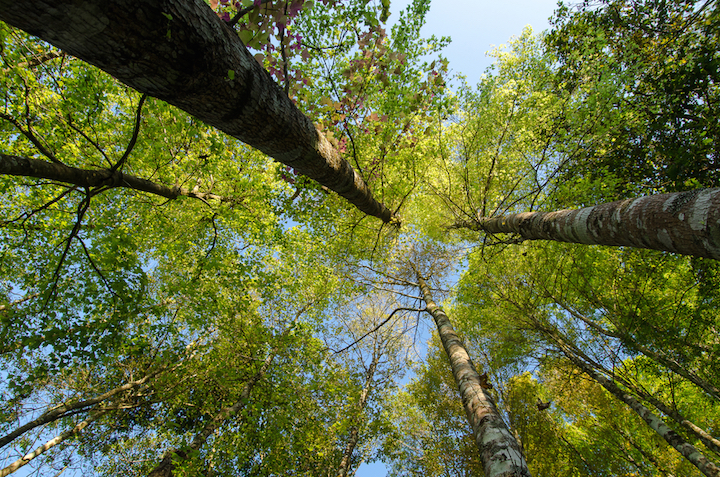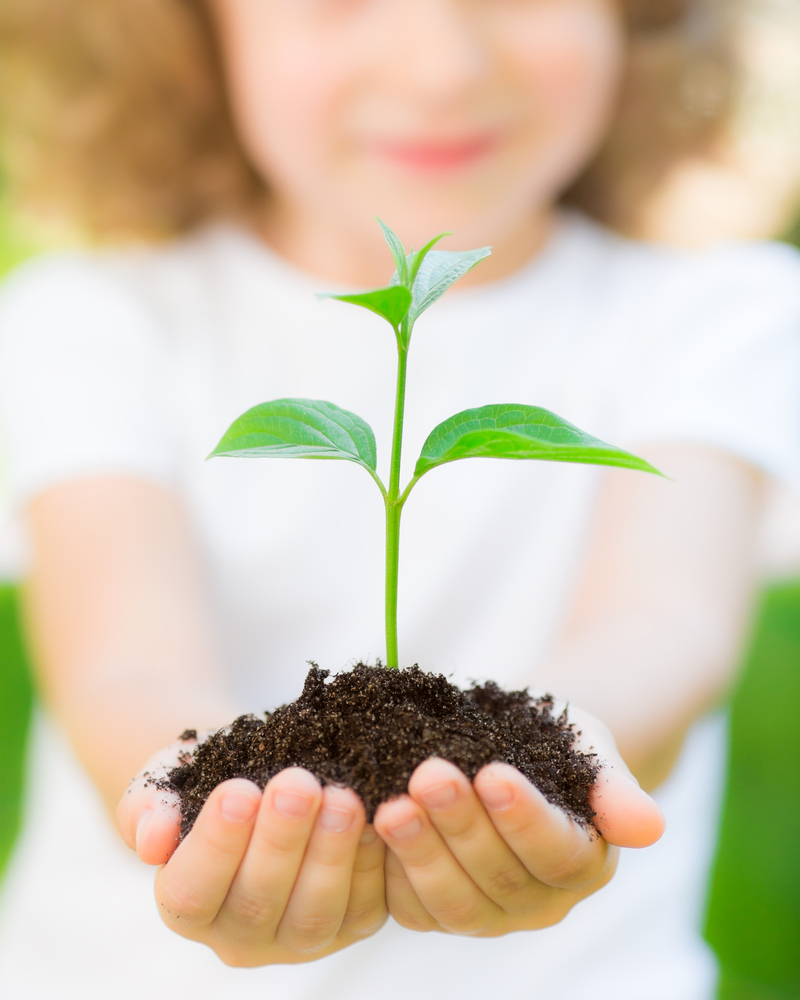
fototrips / Shutterstock.com
Earth Day has been celebrated every April 22nd since 1970. The holiday was born eight years after Rachel Carson released Silent Spring, a book about the detrimental effect that humans have on the natural environment. Particularly, the book examined the negative influence that pesticide use had on birds, bugs, and humans alike. Silent Spring, therefore, effectively started the conversation about environmentalism. Using the environmental momentum of Carson’s book, Senator Gaylord Nelson from Wisconsin came up with the idea of Earth Day after realizing the effects that an oil spill had on the natural environment in California.

Sunny studio / Shutterstock.com
The first Earth Day was more of a protest and public demonstration than what you may think of when you celebrate Earth Day now. College and university students nationwide protested oil spills, pollution, pesticides, and the complete building-up of the country. Anything that was a detriment to the environment was fair game, and 20 million people rallied for a clean environment. By the end of the year, the Environmental Protection Agency was created, and the Clean Air Act, the Clean Water Act, and the Endangered Species Act were passed.
By 1990, Earth Day had become a global phenomenon. The major focus that year was recycling, and people in 141 countries focused completely on environmental rights for one day in April. In 2000, citizens of 184 countries spoke out about global warming and clean forms of energy. In 2010, a record 192 countries celebrated Earth Day, and the Earth Day Network created A Billion Acts of Green and the Canopy Project.
These projects encourage participants to live a greener lifestyle by doing one of many things: planting trees, advocating for a reduction in carbon-producing energy (oil and coal, for example), eating less meat, composting, recycling, switching away from nonreusable plastics, or shopping at local farmer’s markets.
So what can you do to help?
Celebrating Earth Day at college doesn't have to be a huge investment. No one expects you to go plant 100 trees on campus, and you probably aren't allowed to do so anyway. Instead, pick a couple suggestions from the list below and try to incorporate them into your everyday routine.

Arina P Habich / Shutterstock.com
- Compost your food waste. Instead of letting your waste end up in the landfill, you can compost and create a rich soil for your yard or college campus. Ask your college if it has a composting initiative and where food waste ends up.
- Shop local. The closer you are to the source of your food, the less it’s traveled to get to you. Less travel means less gas was used, which means that less carbon dioxide was released into the atmosphere. This is one way to minimize global warming.
- Use refillable water bottles. By using one refillable bottle (like a Nalgene), you can reduce the number of single-use water containers that are ending up in landfills and oceans. If you insist on buying your water at the local grocery, be sure that you are recycling your bottles instead of throwing them away.
- Recycle. Recycling isn’t only applicable to juice bottles and junk mail. You can also recycle your old cell phones, batteries, and printer cartridges. Keeping these types of materials out of a landfill keeps harmful chemicals from finding their way into the local water supply or into the diet of local animals. The Best Buy retail store offers on-site recycling of old electronics.
- Stop driving so much. Cars use gasoline. Gasoline is made from oil, which is essentially ancient plants and animals that were compressed within the Earth over long periods of time. When we remove oil, create gasoline, and then burn it in cars, trucks, and boats, carbon is released into the atmosphere. This is a major contributor to global warming. Carpooling and public transit minimize the individual amount of carbon that is released, since multiple people can take one vehicle. Even better would be biking to class instead of driving. You not only save the environment a little bit, but it’s also a healthy option for you.

amasterphotographer / Shutterstock.com
- Switch your lightbulbs. Fluorescent lightbulbs (the swirly ones) use significantly less energy than traditional, round bulbs. They are more expensive, but they last for much longer (if one bulb is used for five hours daily, the bulb could last between four and eight years compared to traditional bulbs that would give out after less than a year). Even if the only lamp you have is a desk lamp, consider spending a few extra dollars. It’s worth it in the long run.
- Plant a tree. You are not required to go to a nursery, buy a baby tree, and plant it in your parent’s backyard. You can instead partner with a group that fights reforestation and make a monetary contribution. Eden Projects asks for a $10.00 contribution, which is then used to employ local workers to plant trees in deforested areas of Ethiopia, Madagascar, and Haiti. Trees for the Future accepts monetary donations which are then used to provide trees that not only remove carbon dioxide from the atmosphere but also help families in sub-Saharan Africa grow their own food.
You could also consider taking shorter showers or showering less often (a daily shower isn’t necessary for skin or hair), making sure that the lights are off when you leave a room, powering down your laptop fully at night and not just letting it sleep, starting your own garden, or getting involved with community-level environmental groups. Unfortunately, climate change isn’t going to be stopped overnight, but the more people who make an effort, the better a chance we have of making a difference.
I’ve already switched over all of my lightbulbs, I shut my computer down every night, my appliances are Energy Star rated, and I eat a diet that’s pretty low on the food chain. How are you going to help?


